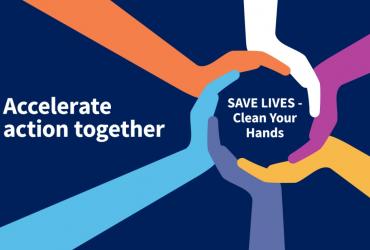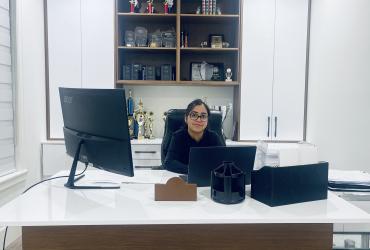Orientation and First Weeks
Right before I was contracted to begin my time at ProMedicals, I was brought in to the clinic to shadow the supervisor as well as the current student kinesiologist, so as to make the transition into full-time work there slightly easier. As soon as I officially started working there though, I was pretty much immediately thrown into the fire. My first day was jam-packed full of appointments: drug and alcohol screening back-to-back, as well as three police appointments, of which our portion takes approximately 1-1.5 hours to complete, physical assessment and all. Needless to say, I was quite overwhelmed! However, my supervisor and the preceding student kinesiologist were extremely helpful and supportive in showing me the ropes, answering any questions I had and discussing goals, concerns, and feedback. After the first few weeks, I was really able to get my bearings and become accustomed to the pace and environment of the clinic.
Day to Day
I arrive at the clinic and set my belongings down, then get settled in. I check to see if there are any patients that have arrived for their appointment. Otherwise, I briefly scan the schedule to check how the day will go, and decide how my supervisor and I will split up the day. I also check the next day's schedule, and begin to prepare the paperwork for the next day whenever I have time throughout the day. I will routinely check the next day's schedule throughout the day, as sometimes appointments can pop up even a day before, and after I have finished preparing everything. Otherwise, it's mainly just conducting appointments, primarily urine drug screens and alcohol tests with some occupational testing (vision, audio) peppered in between.
At the end of the day, a pickup driver will come and collect all the urine samples that need to be sent off to a lab to be tested. If there are more drug screen appointments after the driver arrives, then those samples will be stored in a laboratory refrigerator and sent off the next day.
Learning and Adaptation
Initially, the learning curve was relatively steep. There were a lot of new skills and tasks to learn: collecting urine samples for drug screens and testing them, conducting breath alcohol tests, collecting an accurate ECG reading, etc. Over a short time, experience combined with ample support from my supervisor resulted in me comfortably operating independently. Some tasks took more time to familiarize myself with than others e.g. police appointments and ECG's. These required more time with shadowing and practice, but I found myself picking everything up relatively quickly and smoothly.
Additionally, busy schedules (which were relatively often) warranted a pickup in pace, efficiency, and communication. It is important to be prepared, because depending on which semester you start, you may have to hit the ground running! But don't be discouraged, there is always a strong support system in place for you to fall back on if things get too hectic. It was through consistent feedback and discussion with my supervisor that I was able to adapt quickly to the hustle and bustle of the clinic.
Accomplishments and Challenges
I found that my biggest accomplishment and greatest challenge was being able to conduct a police physical completely independently. We spend the most time with these recruits, and nailing the delivery of instructions as well as understanding how the scoring works for the actions that the recruits are required to do, took quite some practice as well as shadowing and feedback. For example, the recruits have to undergo the Functional Movement Screen (FMS) which tests how individuals perform fundamental movements in a natural way. With this in mind, it's important to know what you can correct and what you can't. There were so many small components to being able to carry out a physical assessment smoothly, that it took me a few months in order to totally get the hang of it.
An important part of all this that I learned was that taking your time with what you say helps tremendously. In delivering the instructions smoothly and clearly, the recruit is able to follow along easily as well as be at ease in what might be a stressful situation for them. Ultimately, being able to carry out the police medicals independently became very gratifying as it almost felt like a rite of passage, in a way.
Wrap Up
In my time at ProMedicals, I definitely amassed a wealth of experience. The clinic offered a multitude of opportunities to hone my existing skills and cultivate new ones, that can be utilized in future academic or work experience. The staff have been endlessly supportive and welcoming, which contributed heavily to my enjoyment during my time there. If you are looking for a placement that will help you sharpen your transferable and technical skills, as well as offer a place of individual growth, then ProMedicals is an option to consider.











